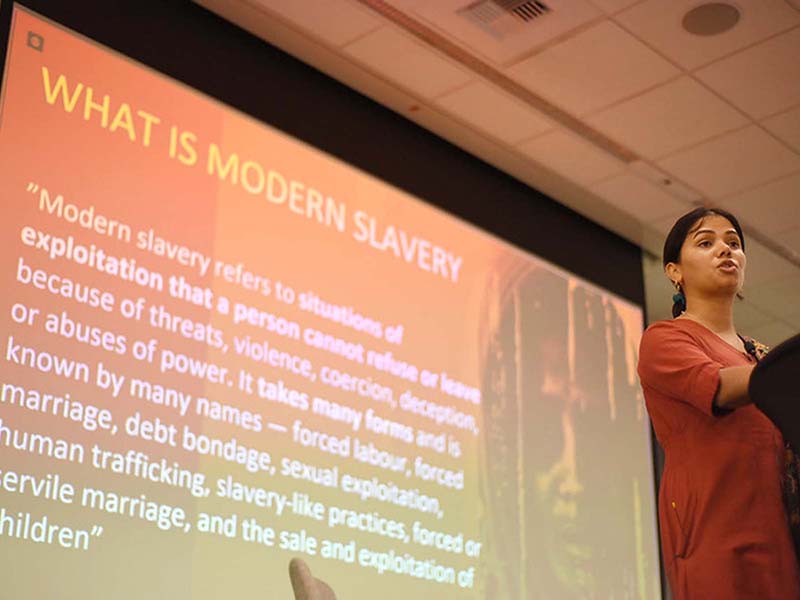
Photo by Caiaimage/Agnieszka Wozniak on iStock
Full access to Mifepristone (part of the two-drug regimen for medication abortion in America) remains legal after the US Supreme Court blocked new restrictions from taking effect. The Supreme Court’s order on Friday, April 21 was a decision about whether the lower court’s stay could remain in place—litigation on the merits of the case will continue in the Fifth Circuit Court of Appeals with oral arguments on May 17.
For background, on Friday, April 7, two federal judges issued opposing rulings in litigation regarding access to Mifepristone (Mife), a safe, effective prescription drug utilized in medication abortion and miscarriage care. Mife has been FDA approved for 23 years and is how more than half of patients in the US access abortion care. A federal judge in Texas ruled that the FDA's initial authorization of Mife was improper and sought to suspend the pill’s FDA approval. Less than an hour later, another federal judge in the state of Washington issued a ruling that directly conflicted with the Texas ruling, ordering the FDA to make no changes to the availability of mifepristone in the 18 states that filed that lawsuit. These two rulings set up a legal standoff that will need to be resolved by higher courts. The Fifth US Circuit Court of Appeals granted the Biden administration's request to put on hold part of the Texas judge's order blocking the FDA's approval of the pill.
The rulings have created confusion about whether the drug is still legal and accessible despite having been safely and effectively used by millions of people since it was approved in 2000. This has been a rapidly evolving situation over the last several weeks, but we now know that patients will continue to be able to access Mifepristone pending any further court rulings this summer.
Access to medication abortion is even more important since the Supreme Court overturned Roe v. Wade last summer. According to new research on Talent and Social Policies conducted by Morning Consult, on behalf of BSR:
- By a 2:1 margin, workers want to live in a state where abortion is legal and accessible.
- Nearly half of workers are concerned for themselves or their partner being criminally charged or going to prison for having an abortion in a state where it is illegal.
- More than a third of workers are concerned about having enough money for themselves or their partner to travel out of state for an abortion.
Restricting access to comprehensive reproductive care, including abortion, is a business and economic issue that employers are already navigating. A ban or further restrictions on medication abortion will result in workers needing to take more time off to find and access healthcare, increase travel and logistical burdens, raise healthcare costs and potentially additional medical follow-up, and increase trauma for employees seeking time-sensitive services and facing unexpected hurdles. In the number of states where abortion is legal, reproductive healthcare systems could potentially be overwhelmed by people traveling to them for care.
These restrictions harm women ages 18 to 45 and have disproportionate impacts on lower-income people, people who live in rural counties, those with disabilities, and families navigating fertility treatments as well as higher-risk pregnancies. Companies need to support efforts to ensure that workers have access to essential healthcare. This is a matter of safety, privacy, and workforce well-being.
Understand the Impact of This Case
BSR is a signer of Don’t Ban Equality which provides the following background and recommendations.
- This case will impact employers of all sizes, in every state, and its potential outcomes represent uncharted territory.
- In addition to safe, effective, and widely used medication abortion care, the case would impact the safest, most effective form of early miscarriage care, and potentially fertility care.
- Employers should evaluate and commit resources (time, travel, and expenses) to support their workforce and dependents to get care, which may increase as employees need to travel further for abortion and miscarriage care.
- Employers should be aware that a nationwide ban on mifepristone would compound gender, economic, and racial inequities, and that providers are already stretched thin. 10 US States Would Be Hit Especially Hard by a Nationwide Ban on Medication Abortion | Guttmacher Institute and Where Restrictions on Abortion Pills Could Matter Most in the U.S. - The New York Times (nytimes.com)
Recommendations for Business Action
- Be vocal now. Speak up about how this ruling could impact the workforce and the benefits you provide to your workers and their families. Eliminating access for this abortion and miscarriage management translates into more logistical burdens, more time away from work, and an additional threat to employee safety and well-being. Speak to the business press, including on background, so they can understand and amplify business concerns, what steps businesses are taking to protect workers/employees, and what challenges employers are facing. Businesses should communicate actions they are taking with their workforce—as employees will ask about how their employers’ existing commitments, programs and policies are affected.
- Stand up in business associations. Business associations that your company belongs to can also stand up—they can sign amicus briefs, engage privately with officeholders, and provide safety in numbers. Hundreds of pharmaceutical and biotech companies as well as individual executives signed an open letter opposing the Texas judge’s ruling. The BIO industry association alongside companies and other executives in industry ultimately filed an amicus brief at the Fifth Circuit and the Supreme Court citing threats to pharmaceutical innovation and industry standards. The Pharmaceutical Research and Manufacturers of America (PhRMA) filed an amicus brief with the Supreme Court citing concerns about widespread industry disruption if a ban on Mifepristone went into effect.
- Communicate with lawmakers. Talk with office holders that represent your operational locations about the need to codify access to reproductive care into law, including the federal Women's Health Protection Act, and any efforts for codification in supportive state environments. Reach out privately to lawmakers in states where new restrictions are advancing right now to oppose them, including North Carolina and Florida (also see the State policy bill tracker and What US Abortion Legislation Looks Like in 2023).
- Understand business impacts on customers and affected stakeholders. Identify how your business’ actions, products, and services might impact those seeking reproductive healthcare, including data tracking and surveillance, financial services for health care providers, pharmaceutical sales policies and practices, etc. Shareholders are already demanding more from companies post-Roe.
- Align corporate political giving heading into the 2024 election cycle. Employers that support diversity, equity, and inclusion need to consider the bottom-line and personal consequences of providing uncritical support to lawmakers that are advancing dangerous policies that are opposed by a majority of workers in the US. Companies can do self-assessments and use tools like the Erb Principles for Corporate Political Responsibility to help companies respond to new questions and pressures related to their political influences – from employees, investors, customers, and the public.
BSR’s Center for Business and Social Justice is tracking the developments of this case and continuing to help companies navigate this chaotic environment. Reach out to BSR’s Center for Business and Social Justice to learn more about resources, practices and ways companies can get involved.
Originally appeared on LinkedIn.
BSR’s latest sustainability insights and events straight to your inbox.
Topics
Let’s talk about how BSR can help you to transform your business and achieve your sustainability goals.








